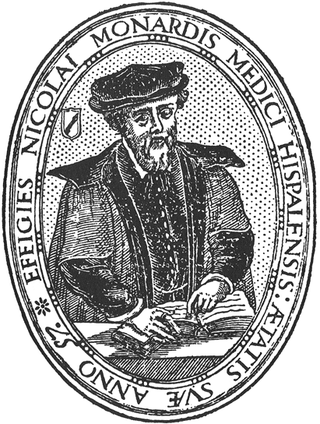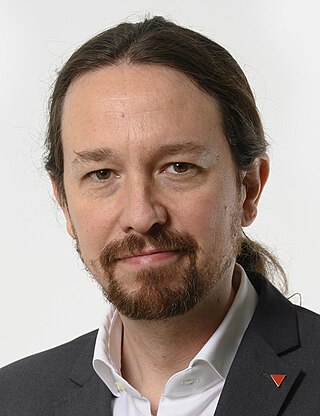Related Research Articles

Proyecto Uno is a Dominican-American hip hop/Merengue house group which helped popularize a style of music which blends merengue with techno, dancehall, reggae and hip-hop/rap music. The band was founded in New York City's East Side in 1989 by Nelson Zapata and managed by Porfirio "Popi" Piña. Originally formed as traditional merengue band, Proyecto Uno received recognition in the 1990s, the group won Billboard Latin Music Awards, Premios Lo Nuestro and was nominated for an Emmy award. The current members are Nelson Zapata, Kid G and Paolo Tondo. The manager of the group currently is Rafael Zapata III.

Los Violadores are a rock band from Argentina, pioneers of the punk rock genre in Latin America.

Juan Diego Ruiz Moreno, professionally known as Juan Diego, was a Spanish actor who appeared on stage, in television and film productions since 1957. He starred in films such as The Holy Innocents, The 7th Day, Dragon Rapide, París-Tombuctú and You're the One.

Historia medicinal de las cosas que se traen de nuestras Indias Occidentales is the standard title for a survey by Nicolás Monardes (1493–1588), Spanish physician and botanist. It appeared in successive editions under varying titles, gradually enlarged, in 1565, 1569 and 1574, followed by an unchanged reprint in 1580.

Mario C. Lugones was an Argentine film director. He directed films such as the 1950 film Abuso de confianza.
Manuel Alcón was an Argentine film actor and musician.

Gente de Zona is a Cuban reggaeton duo made up of musicians Alexander Delgado Hernández and Randy Malcom Martínez. In 2014, the duo gained success with the collaboration of Mario Proenza, who helped them record with Enrique Iglesias the song "Bailando". This hit gave the duo numerous prestigious awards like the Latin Grammy and Latin Billboard Awards.
José Nieto is a Spanish composer, orchestrator, songwriter, conductor and drum player. He is best known for writing films scores, such as Mad Love (2001), El bosque animado (1987), The Fencing Master (1992), Carmen (2003), The Turkish Passion (1994) or I Know Who You Are (2000). For television he has composed music for the BBC in series like Crusades(1995) or From the Heart of the World (1990), and other international and Spanish series such as Captain James Cook (1988), Armada (1988), Teresa de Jesús (1984) or Los jinetes del alba.

"Equivocada" is the lead single of the live album Primera fila by Mexican pop star Thalía. The single was officially released on October 7, 2009. It is a tragic love ballad. The song is a success for Thalía, already exceeding the number of digital sales in Mexico, Latin America, USA and Europe. The song peaked at No. 2 in the Latin Pop songs category on the Billboard charts and No. 8 on the Hot Latin Songs chart.

Los Número Uno: Éxitos 1968-2003 (2003) is the twentieth album and second compilation album by Mexican rock and blues band El Tri. Going back to the end of the Sixties when the band was only a trio known as Three Souls in my Mind the compilation take a couple of songs 30 years old as well as hits up to the latest albums.

The Ecce Homo in the Sanctuary of Mercy church in Borja, Spain, is a fresco painted circa 1930 by the Spanish painter Elías García Martínez depicting Jesus crowned with thorns. Both the subject and style are typical of traditional Catholic art.
Podemos is a left-wing populist political party in Spain. Part of the anti-austerity movement in Spain, it was founded in January 2014 by political scientist Pablo Iglesias Turrión and other academics in the aftermath of the 15-M Movement protests against inequality and corruption.

Germán Alejandro Garmendia Aranis is a Chilean YouTuber, singer-songwriter, comedian and writer. He became famous for his YouTube channel HolaSoyGerman, in which he uploaded humorous videos about everyday situations. In 2013, he created his gameplay channel, JuegaGerman, which over time would end up surpassing his previous channel in subscribers. It is the second-most subscribed channel in the Spanish language, behind Argentine channel El Reino Infantil. He is the most-subscribed YouTuber in Chile. He, in turn, is also the most followed Spanish-speaking YouTuber, having more than 91 million subscribers among his various channels.

Pablo Iglesias Turrión is a Spanish political scientist and former politician. During his political career, he served as Second Deputy Prime Minister and as Minister of Social Rights and 2030 Agenda of the Government of Spain from 2020 to 2021. He also served as Member of the Congress of Deputies from 2016 to 2021, representing Madrid. Iglesias is a co-founder of Podemos, a left-wing political party that he led from 2014 until his resignation in 2021.

Borja Iglesias Quintas is a Spanish professional footballer who plays for La Liga club Real Betis and the Spain national team as a striker.
The La Manada rape case began with the gang rape of an 18-year-old woman on 7 July 2016 during the San Fermín celebrations in Pamplona, Navarre, Spain. The case drew intense public scrutiny as it called into question the definition of rape under Spanish law. Five men, including a member of the Civil Guard and another of the Spanish Army from Seville, filmed themselves repeatedly attacking the girl in the vestibule of an apartment building. La Manada means "The pack" in Spanish.
This article includes an overview of the major events and trends in Latin music in the 1980s, namely in Ibero-America. This includes recordings, festivals, award ceremonies, births and deaths of Latin music artists, and the advancement and adjournment of the genre from 1980 to 1989.
Luca Miguel Marcogiuseppe is an Argentine football manager, currently in charge of Chilean club Audax Italiano.

Daniel José Santomé Lemus, better known by his username Dalas Review, is a Spanish YouTuber with more than 10 million subscribers on his main channel. He has also authored two novels, Fugitives in Time (2016) and The Ink. Beyond the Magic (2017). In 2017, he also released a video game called Fur Fun on Steam, which has been unavailable since 2018 due to a lot of criticism for the low quality gameplay and the many bugs it had in the beta version.

María Carla Piccolomini is an Argentine politician who was a National Deputy from 2017 to 2021, elected in Buenos Aires Province. She is a member of Republican Proposal (PRO).
References
- ↑ Memorial, que con la mayor veneracion, y confianza pone a las reales plantas de la Catolica Magestad del Rey Nuestro Senor D. Felipe V. que Dios guarde, la Santa Iglesia Metropolitana y Patriarcal de Sevilla. La Santa Iglesia Metropolitana de Sevilla. 1725. Retrieved October 26, 2017.
- 1 2 3 4 Lozano, Buen. "Can We Trust?" (PDF). sociology.ox.ac.uk. Archived from the original on October 3, 2005. Retrieved October 26, 2017.
{{cite web}}: CS1 maint: bot: original URL status unknown (link) - ↑ Derechos del trabajador de confianza. National Autonomous University of Mexico. 2001. ISBN 9683690319 . Retrieved October 26, 2017.
- ↑ Intimidad: La confianza en uno mismo y en otro. Penguin Random House. 2011. ISBN 9788425344541 . Retrieved October 26, 2017.
- ↑ Echeverría, Rafael (2011). Empresa emergente, La: La confianza y los desafíos de la transformación. Ediciones Granica. ISBN 978-9506416492 . Retrieved October 26, 2017.
- ↑ La Confianza: En Su Ausencia, No Somos Nadie. Plataforma Especial SL. 2007. ISBN 978-8493596279 . Retrieved October 26, 2017.
- ↑ Rodríguez Alcaide, José Javier (2008). Confianza, Comunicación Y Pacto de la Familia Empresaria. Universidad de Cordoba. pp. 9–138. ISBN 9788488423467 . Retrieved October 26, 2017.
- ↑ Pérez C., Edelmira (2000). Reconstruir la confianza en Colombia: nueva institucionalidad en el sector rural. Pontifical Xavierian University. pp. 15–184. ISBN 9586832600 . Retrieved October 26, 2017.
- ↑ Sandoval, Víctor (24 May 2013). "Legislador perredista envía a prisión a su mujer por abuso de confianza y robo". W Radio (in Spanish). Retrieved 11 July 2016.